Stories
Reports, interviews, essays, and opinions about music and its connection to business and society.
The Beauty of Gemina Retrospective II: Disruption
Ahead of their 10th studio album, «Songs of Homecoming», we explore The Beauty of Gemina’s history, development, and sound in a three-part retrospective.
On November 23rd, 2012, my perception of The Beauty of Gemina was shattered into a million pieces. The cracks opened wide and revealed a new future for the sound. It was a tender revolution spearheaded by a single show.
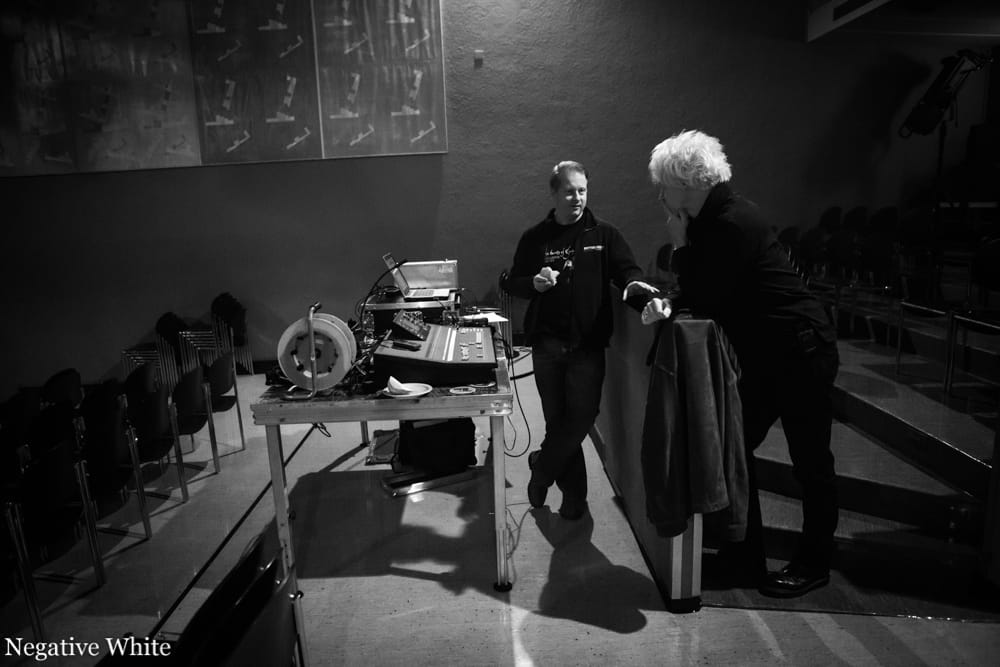
As The Beauty of Gemina is about to release the band’s 10th album, Songs of Homecoming, I am listening to the previous albums again, revising firmly held opinions, and sharing past experiences with the band.
For this retrospective series, I went through old backup drives and folders and recovered some material that is no longer available online or has never been published.
 Negative WhiteJanosch Troehler
Negative WhiteJanosch Troehler
Returning from their acoustic show tour with the band Diary of Dreams through Germany, The Beauty of Gemina also played an acoustic show in Michael Sele’s home base, «Altes Kino Mels».
By then, Negative White was already in full swing, and my brother Nicola and I drove to this small city lying in the shadows of towering mountains. It was the landscape that inspired Sele to write Suicide Landscape.
Grew up in this shadowland
With a Suicide Landscape
Where the black birds are singing
Where the black birds are falling down
We arrived around 5 p.m. while the band was undergoing soundcheck. We immediately started documenting everything for a backstage report that would be published, unlike the first attempt at «Z7» three years prior.
The band and crew are extremely focused. There is tension in the air. The old cinema is often a rehearsal room for the band, and many memories are revived here. That’s why perfectionism goes down to the smallest detail when choosing the microphone: «Doesn’t the other one sound a bit better?»
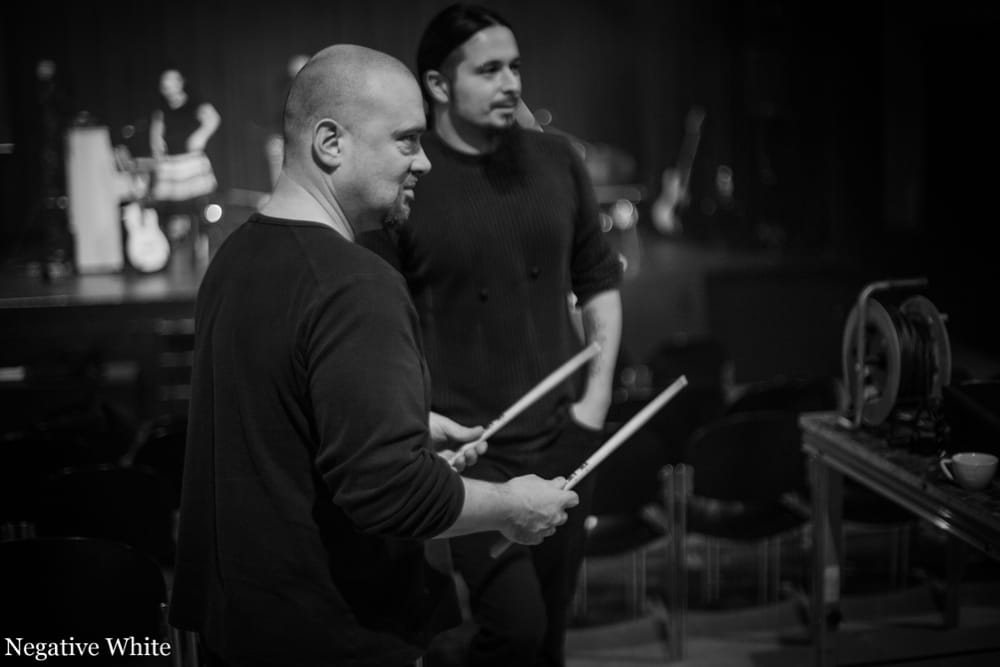
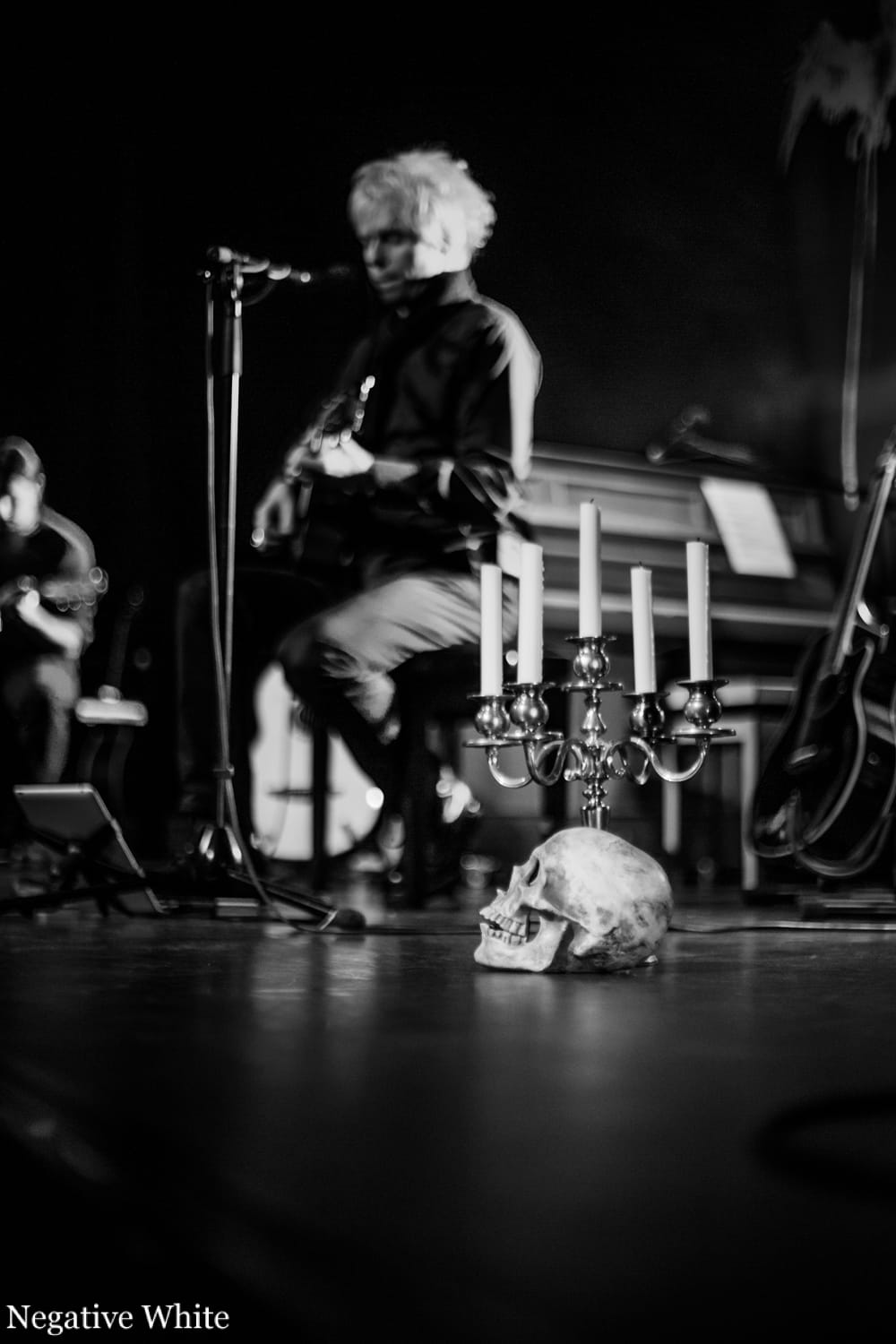
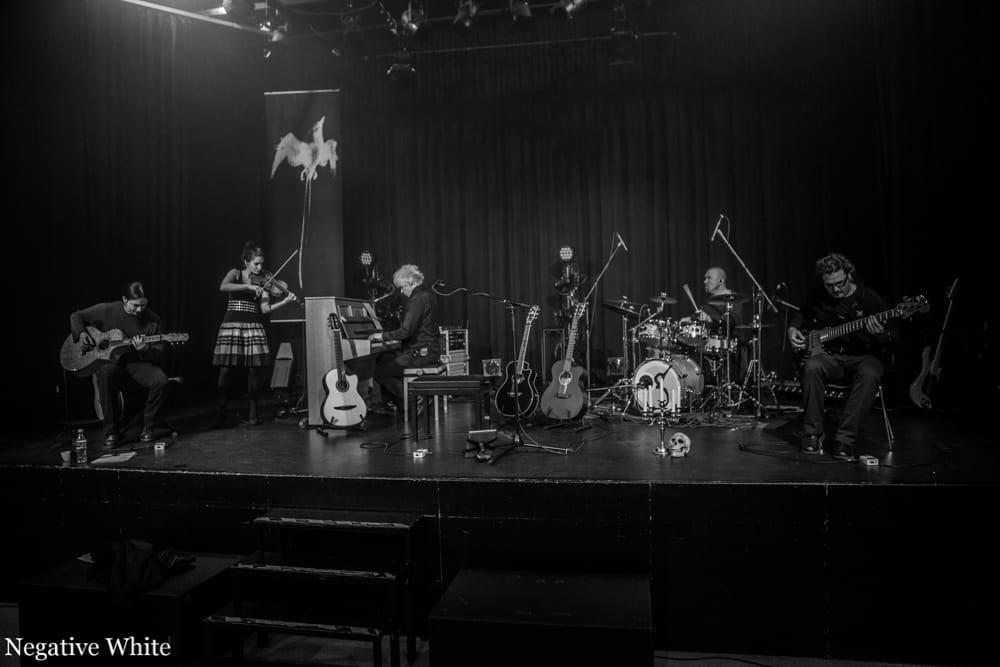
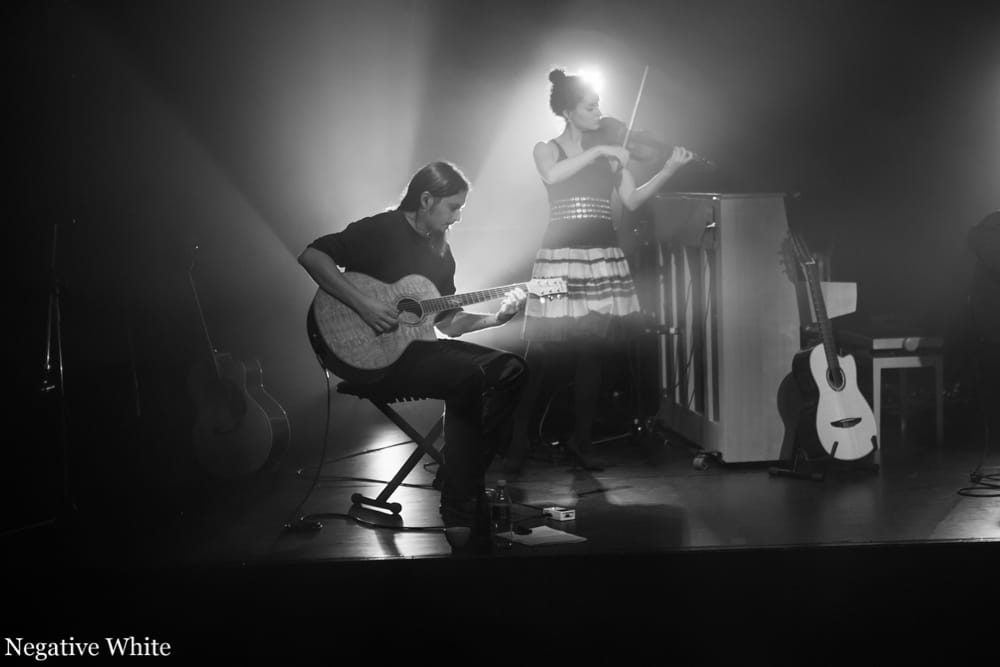
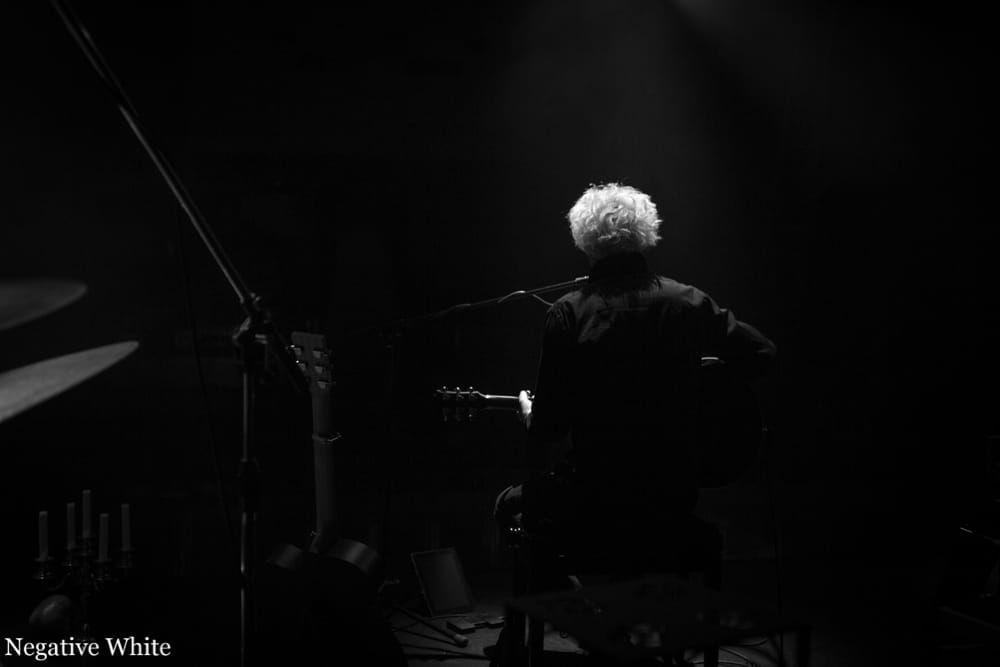
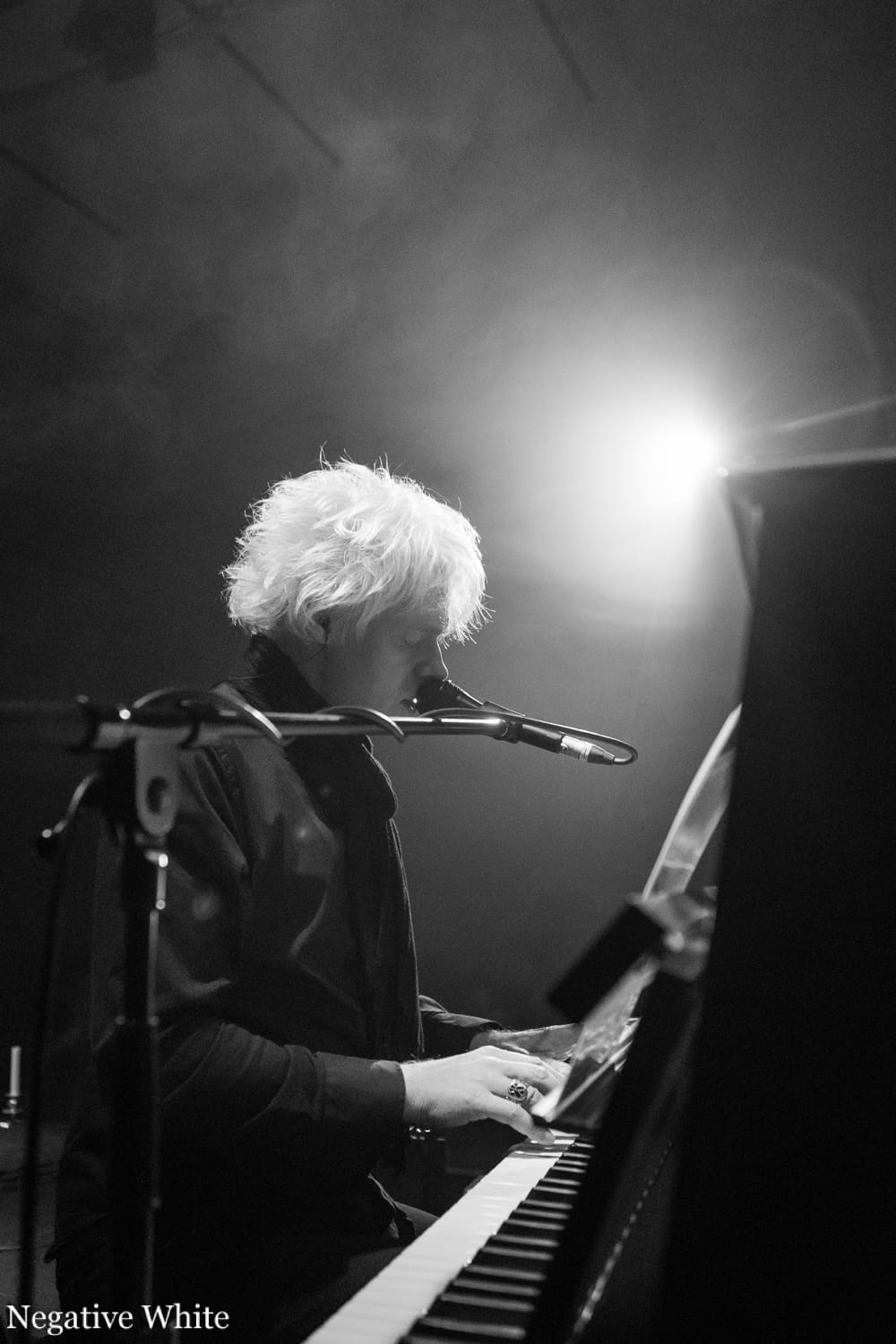

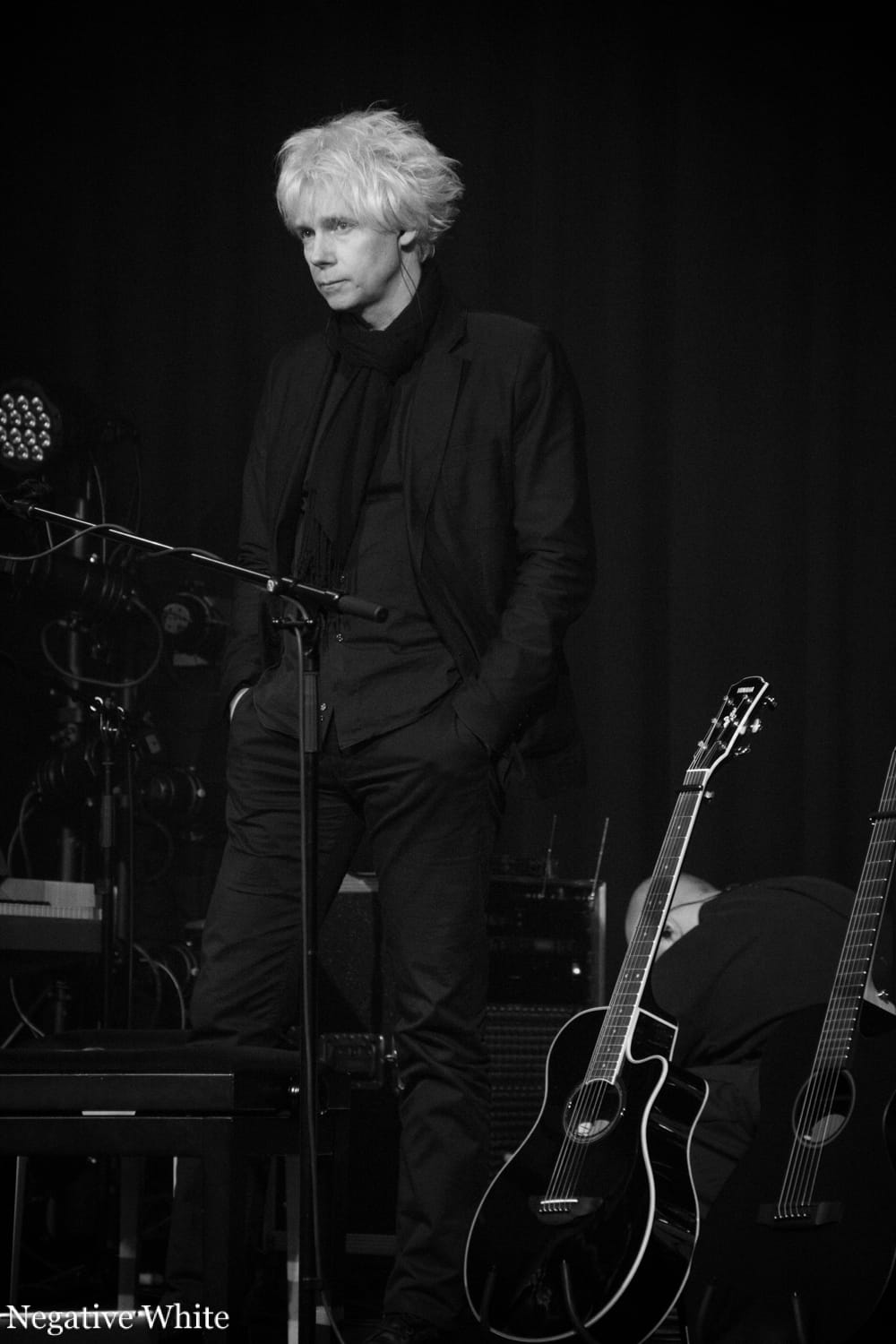
Photos: Nicola Troehler
The concert then marked a significant change for The Beauty of Gemina and everybody familiar with the band. It was an experience beyond what words can express. It was nothing short of a reinvention, a rebirth of their music, their sound. The band intentionally or accidentally shattered their image and trajectory into pieces.
Golden Age trots away, drawing the concert onwards with feather-light leaps and unusually bright sounds. This is followed by Hunters, an unconventional and, above all, very unwieldy piece of music from the debut Diary of a Lost. In the acoustic adaptation, it approaches with heavy, pounding piano steps. The hunter approaches slowly, but there is still no escape! Where rock shows are characterised by a virtuoso guitar solo, a long instrumental now captivates. Even now, the fear that the song conveys can stretch its cold, thin fingers into the room.
The musicians on stage are experts, and violinist Rachel’s stress has evaporated. The fresh guise of the songs makes the concert particularly exciting and varied. It’s as if you’re seeing the band for the first time and don’t know what’s coming.
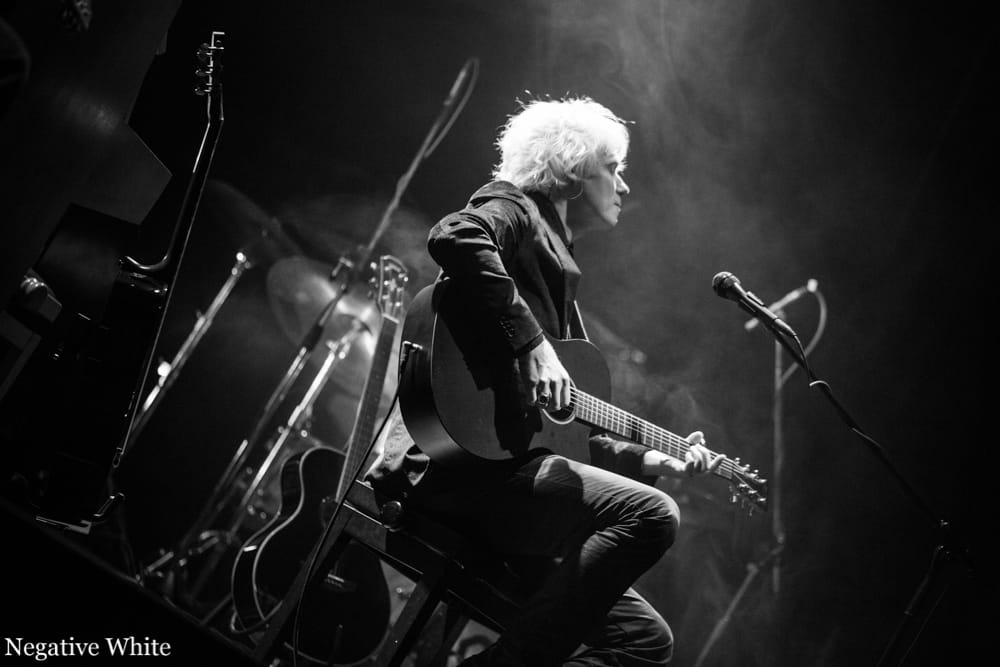
However, what was foreshadowed by this acoustic concert should grow into a full-blown disruption culminating in The Myrrh Sessions, the album with acoustic interpretations released in February 2013. Even today, this album is phenomenally good with this one flaw I already pointed out in the initial review: The already acoustic-heavy Stairs is an unnecessary addition to the otherwise flawless record.
Otherwise, I still stand by my conclusion:
The Beauty of Gemina Retrospective I: The Goth Years
Ahead of their 10th studio album, «Songs of Homecoming», we explore The Beauty of Gemina’s history, development, and sound in a three-part retrospective.
The Beauty of Gemina. It is the band I have seen the most on stage. And I have interviewed their creative nucleus, Michael Sele, eight times in the past 16 years. Ever since I heard their song Shadow Dancer on a compilation CD bought in 2008, they have remained a source of fascination.
In recent years, this platonic relationship between The Beauty of Gemina and myself cooled off slightly. As the band is about to release their new album, Songs of Homecoming, I decided to listen to all of their albums again as unbiasedly as possible, revise firmly held opinions—and stroll down memory lane and share past experiences with the band.
For this series, I went through old backup drives and folders and recovered some material that is no longer available online or has never been published.
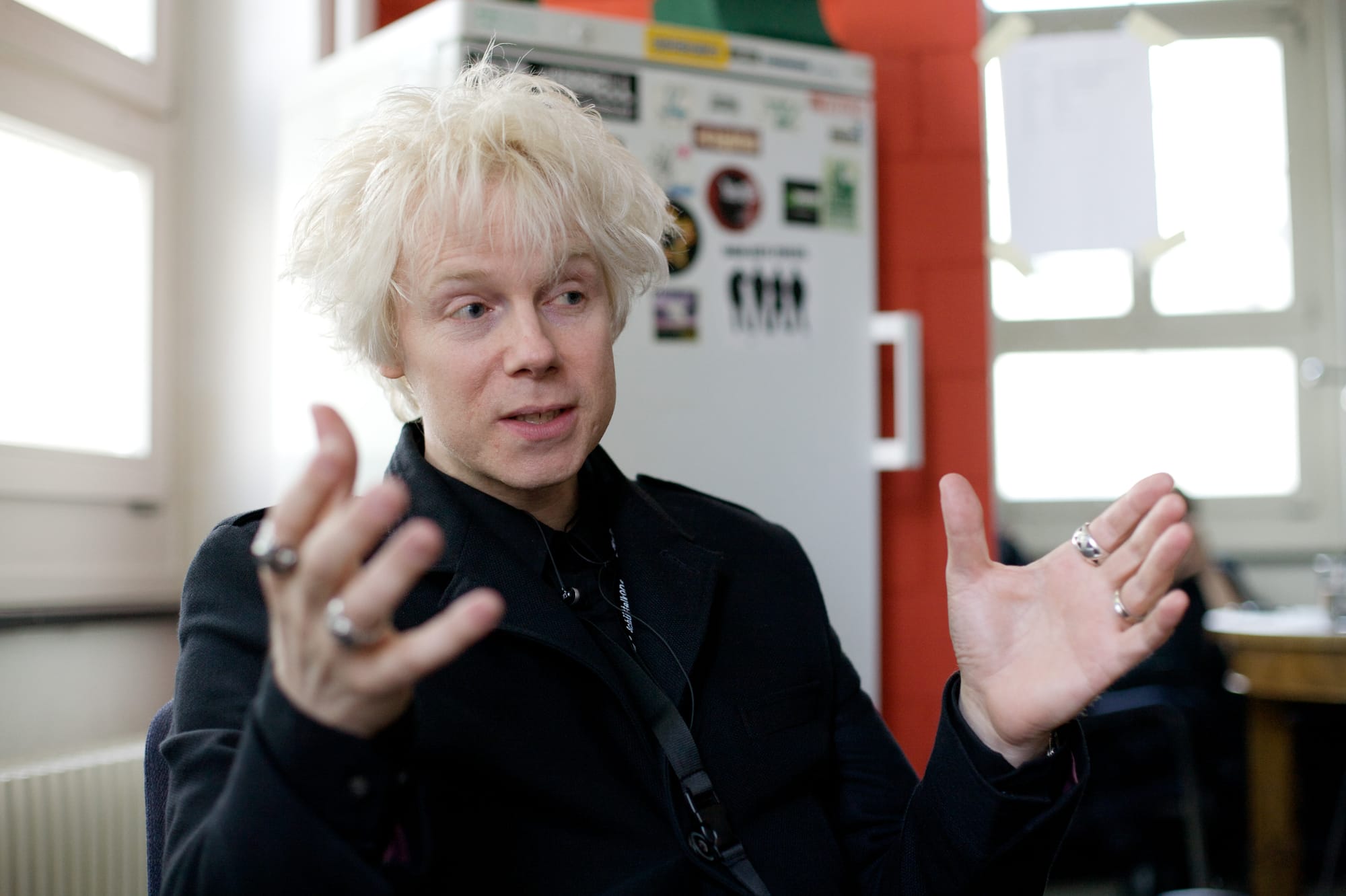
I was writing short artist biographies for Cornelius Fischer, then a concert photographer, who captured many bands in the goth subculture. One day in Spring 2009, he asked me if I would like to interview Michael Sele and The Beauty of Gemina’s new bass player, David Vetsch, for an online magazine called «imScheinwerfer».
At the «Kammgarn» in Schaffhausen, Switzerland, I met the band for the first time, having never conducted an interview before. And suddenly, this fabled world opened up. I was granted access to the exclusive—and, as I soon realised—very boring—backstage area. But for the time being, everything was new and exciting—like the first day at school. Even the soggy pasta for dinner tasted great.
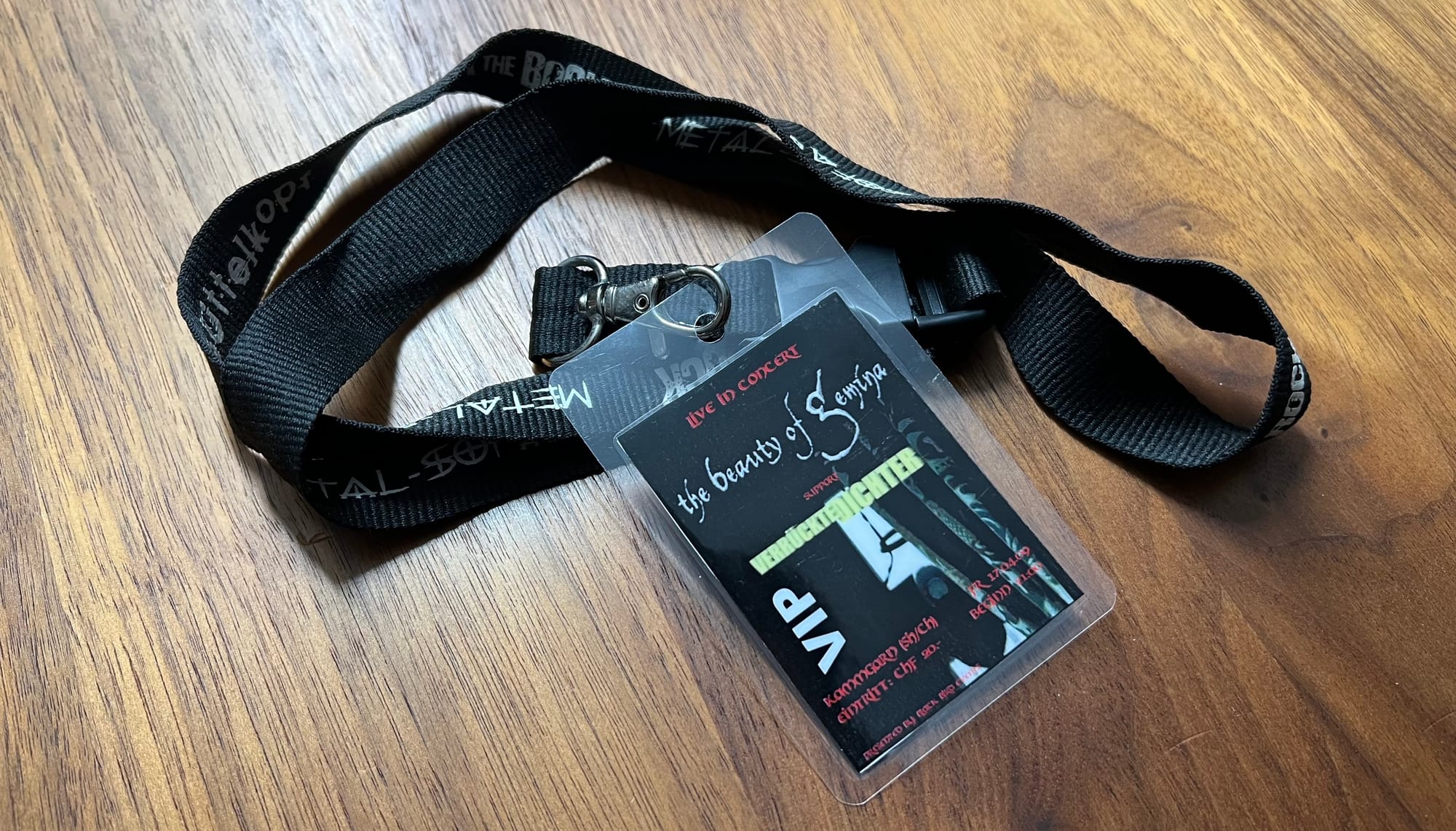
The interview is no longer online, but I found it printed out and stored in a folder.
«Panic overwhelmed me and I thought I would die»
Swiss synth-pop artist THYMIAN opens up about the traumatic experience processed in his new EP «White Knuckled».
Dramatic—that is the meaning of «white knuckled». The interpretation is still fitting, but for THYMIAN, it was the literal description of the knuckles turning white when grabbing something really tight. In his case, grabbing on to life.

Finding Nemo: Switzerland’s Ignorance of Non-binary People
Nemo’s victory at the Eurovision Song Contest with «The Code» highlights Switzerland’s lagging progress in acknowledging non-binary people.
On May 12, shortly after midnight, Swiss musician Nemo won the Eurovision Song Contest 2024 in Malmö, Sweden. The winning performance, achieved with the song The Code, was Switzerland’s third win after a long drought since 1988.
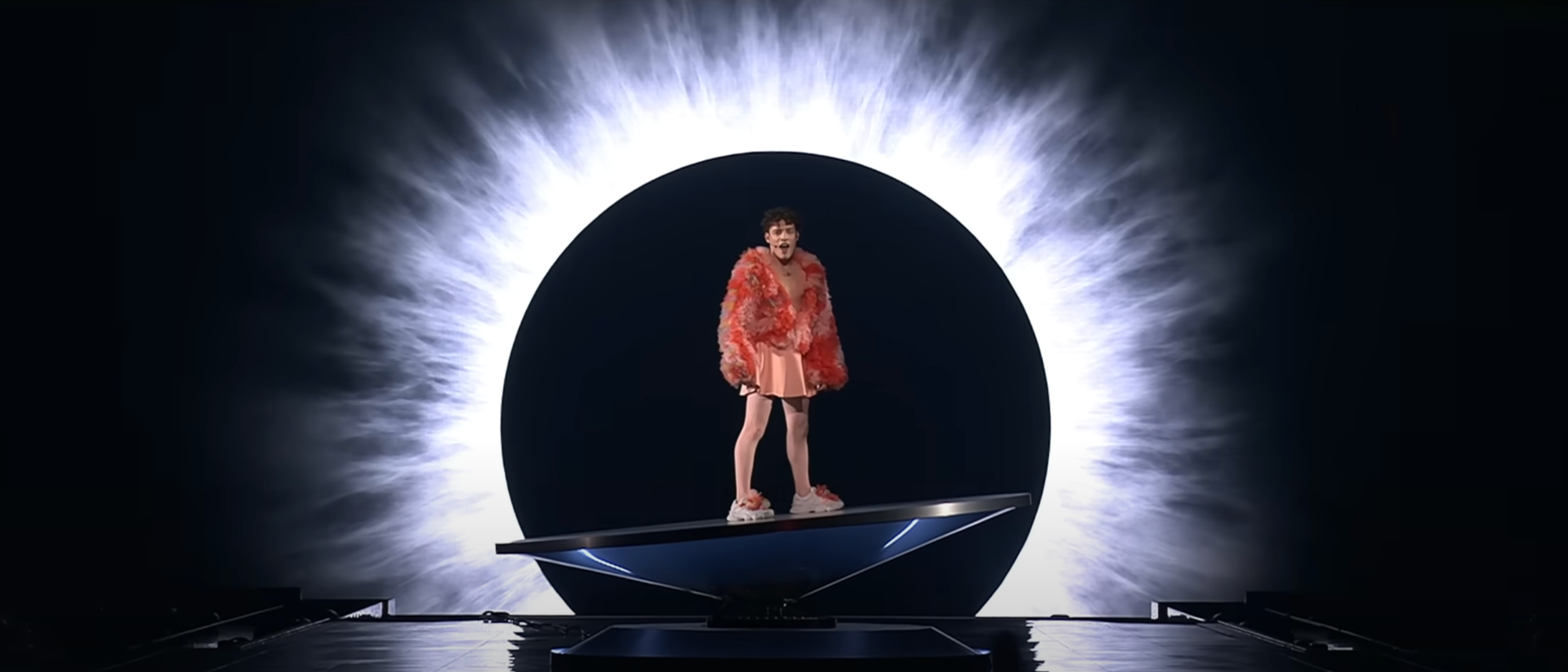
Nemo Mettler (24) gained mainstream success in 2017 as a rapper with Swiss-German lyrics. The song Du gained platinum status—there was no way around the up-and-coming artist.
One can question Eurovision’s artistic value. It is mainly an entertaining spectacle, but Nemo’s The Code was one of the few truly interesting songs performed.
But Nemo’s triumph—thanks to overwhelming success with the juries and the public vote—is not the centre of this story. Nemo also represents a premiere for Eurovision: It is the first time a non-binary person has won. And it puts Switzerland politically in an awkward position.
Switzerland’s Federal Council Against A Third Gender
The Fake Kind of Vinyl
AI-generated music takes away attention and revenue from real musicians. It's a problem.
Vinyl—celebrating a small but persistent comeback in recent years—is a soothing alternative to the hyperactivity of streaming services. Not only is it arguably a more conscious consumption of music, but also a welcome deterrent to AI-generated trash.
The vibrant culture around the big black discs is alive and well, as I once again experienced when visiting the local record store on «Record Store Day» past Saturday.
However, on the opposite spectrum, there is the all-availability of streaming, battling yet another big enemy besides the non-functioning business model: AI-generated music.
Last week, I stumbled over this "artist" called Obscurest Vinyl, pumping out song after song since the beginning of April.
